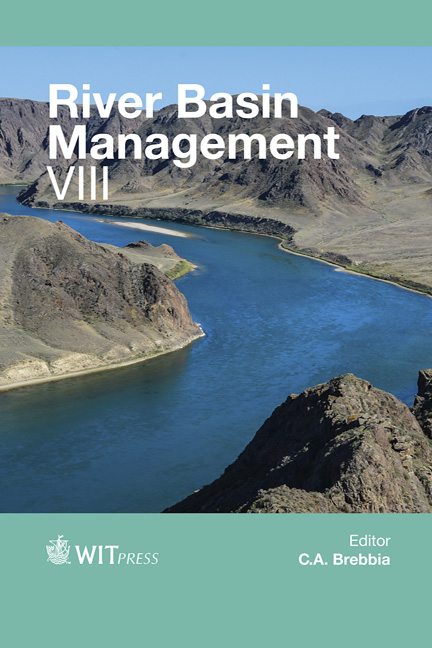Water Managers’ Perspectives On Reservoir Operations For Sustainable Irrigation In Alberta
Price
Free (open access)
Transaction
Volume
197
Pages
12
Page Range
161 - 172
Published
2015
Size
364 kb
Paper DOI
10.2495/RM150151
Copyright
WIT Press
Author(s)
M.-È. Jean, E. G. R. Davies
Abstract
Sustainable reservoir management is essential to ensure the productivity of agriculture and to adapt to a changing climate. Despite progress in reservoir modelling and management with the improvement of computer capabilities and the development of optimization methods, managers and decision-makers still face the challenge of applying the output of more-theoretical optimization models to real-world reservoir operations. This research analyzes reservoir managers’ perspectives in Alberta’s heavily-allocated South Saskatchewan River basin, in order to improve understanding of the behaviour of reservoir operators under different climatic and hydrological conditions. The method involves in-person interviews with twelve water managers of Southern Alberta’s irrigation districts. The data collected suggest that seniority-based allocation priorities are generally not strictly applied. Instead, cooperation between districts and between irrigators within a district indicates that water allocations are driven principally by the infrastructure capacity on a river-basin-scale basis. Of additional importance is recognition of the “day-by-day” approach adopted by all water managers interviewed who will “never sacrifice today for tomorrow”. Moreover, water managers do not apply annual or multi-year water deficit-distribution strategies, but instead impose variable water rationing for all irrigators at the beginning of a growing season. The contribution of this research is to provide real-world data and a better understanding of water managers’ perspectives that may lead to more valuable outcomes from modelling studies, and results that may be more readily adopted by water managers.
Keywords
irrigation, operators’ decision-making, optimization models, reservoir operations, stakeholder interviews





